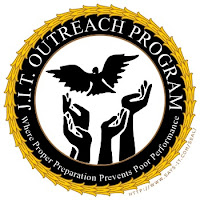Services
Three youthful offender institutions were visited: Brevard, Hillsborough, and Indian River Correctional Institutions. The team also visited the Florida Correctional Institution, an institution for adult female offenders that manages a small youthful offender program. The programs at each facility were similar and are described below.
Central to all four facilities is the Extended Day Program. This program uses a quasi-boot camp structure emphasizing constant activity to keep residents productively occupied in exercise activities, classes, or work detail throughout the day. Programming begins at 5:30 a.m. with military drill and exercise. School programs operate from 8 a.m. to 8 p.m. weekdays, with other scheduled program activities on weekends. The program operates in a regimented, military atmosphere. Residents are required to ask staff permission to pass by, to stand at attention in the presence of ranked staff, and to use “Yes sir” and “No sir” when speaking. The program uses a ranking system, signified by the color of hat the inmate is required to wear, for access to privileges such as telephone use, commissary access, and visitation rights. Advancement through these ranks is based on good conduct and satisfactory progress in the program.
The premise of the Extended Day Program is that youthful offenders are volatile and impulsive, so more intensive levels of activity are required to manage their behavior. Essentially, the program tries to wear down offenders physically so that they have neither the time nor the energy to engage in misconduct. A high level of activity and structure creates a more receptive attitude toward programming, particularly educational programming. Resistant youth are faced with the prospect of transfer to an adult correctional facility.
Florida’s youthful offender facilities offer standard GED programs, special education services, and vocational training. The facilities also offer medical and mental health treatment services, including therapeutic units for drug and alcohol abuse. In assessing program needs, staff identified a need for a violence interruption program and a life-skills program to assist residents in reintegrating into society.
Florida has attempted to separate youthful offenders from the adult population by dedicating facilities for the youthful offender program. However, the state’s definition of a youthful offender, essentially any offender between the ages of 13 and 24, is broad. Within the youthful offender facilities, attempts are made to further separate offenders by age and type of offense, but program activities generally mix program residents of all ages. The department modifies the Extended Day Program for very young offenders.
Because of their small number, female youthful offenders are incarcerated with adults at the Florida Correctional Institution. The youthful offenders at this facility are housed in a dormitory separate from the adult population. Although they participate in the Extended Day Program, youthful offenders are mixed with the facility’s adult population for all other programs and services.

